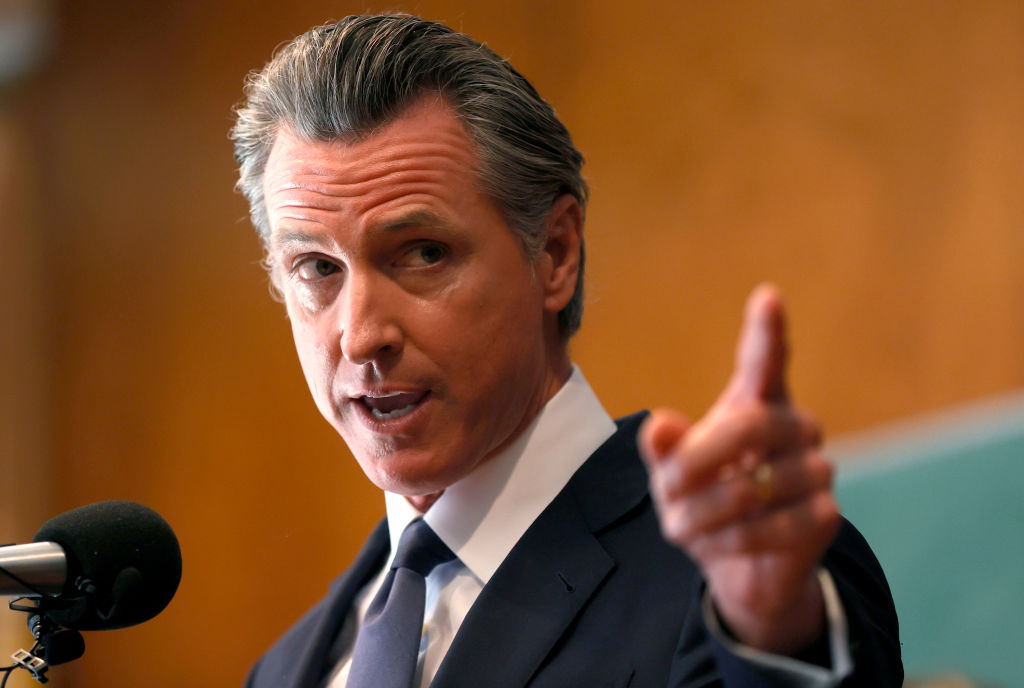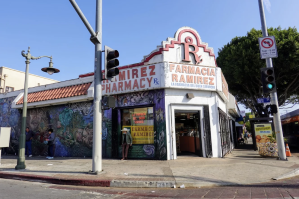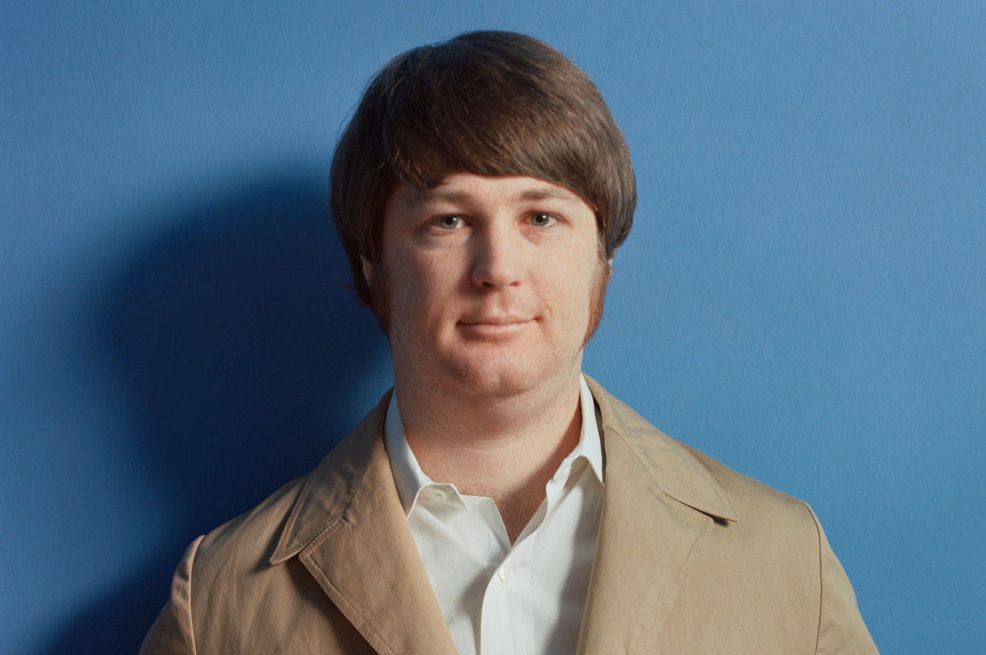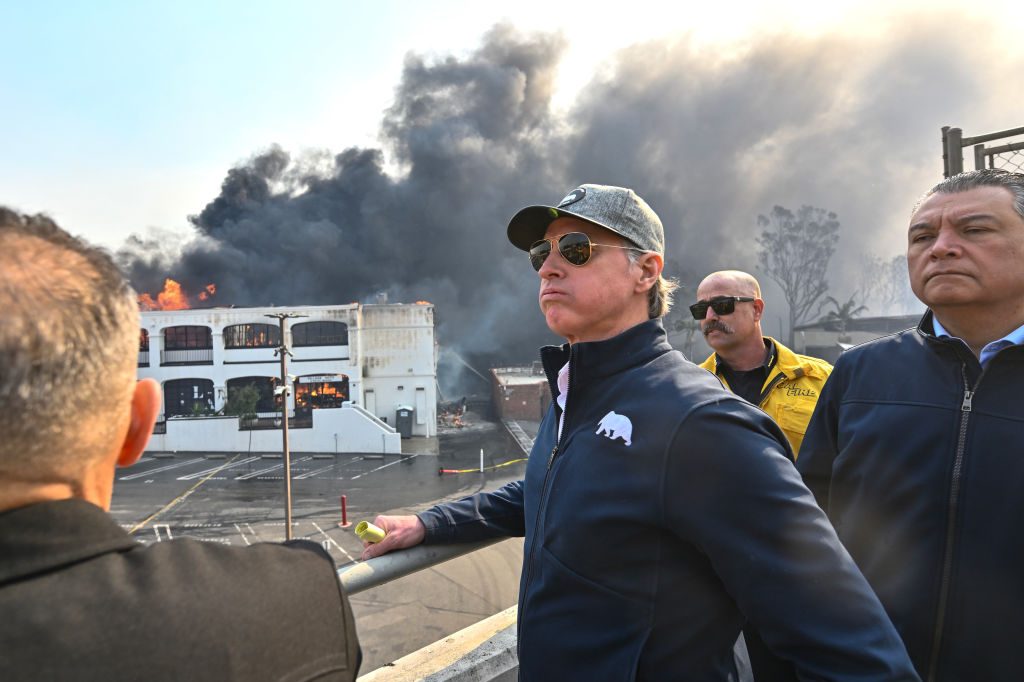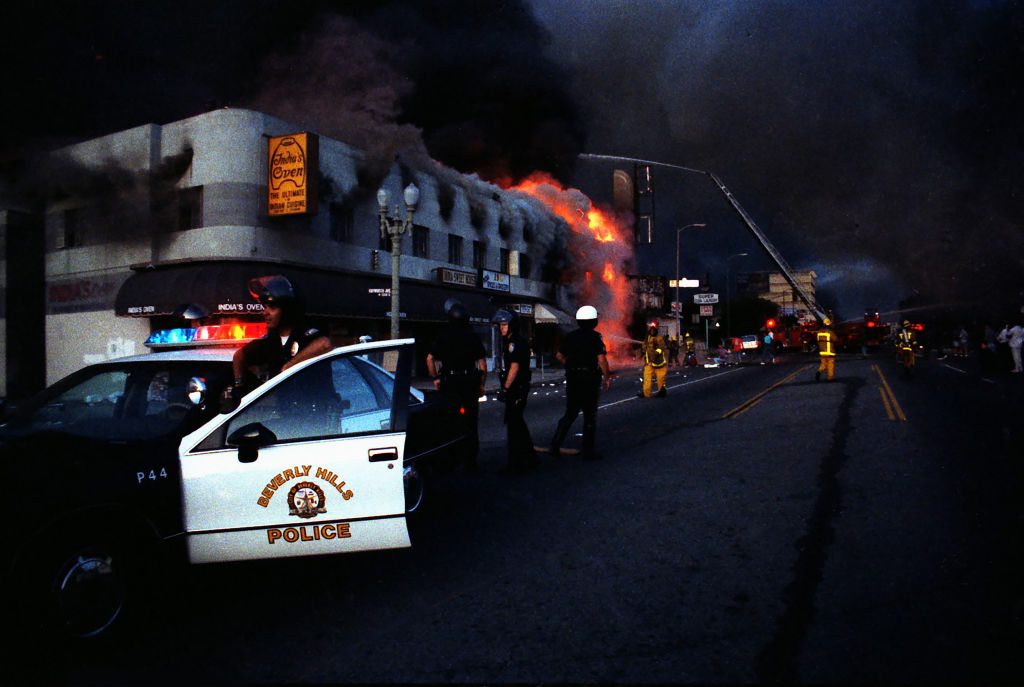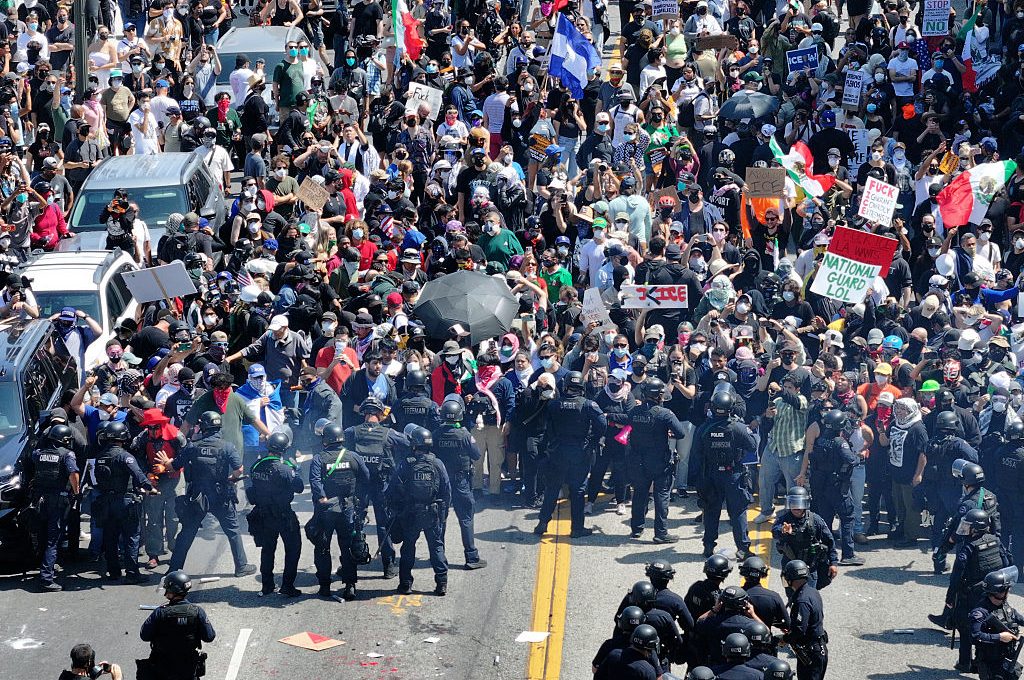In August, polls showed that Gavin Newsom’s chances of surviving a recall were slipping away. Many Democrats were so apathetic and Republicans so fired up that in a low-turnout election, the nation’s largest Blue State might indeed oust its liberal governor.
Democrats went to work. Leading Democrats from President Joe Biden to Vice President Kamala Harris to Sen. Bernie Sanders all painted the recall as a ‘life or death’ battle to preserve liberal values and fight ‘Trumpism’ and extremism. Larry Elder, the leading Republican in the simultaneous election to pick a successor to Newsom should the recall succeed, was turned into a boogeyman with a Los Angeles Times columnist actually calling him ‘the black face of white supremacy’.
The strategy worked. Sean Clegg, Newsom’s director for paid media, admitted the ‘profound enthusiasm gap was real… It’s what we worried about the most’. Ace Smith, Newsom’s chief strategist, told Politico that once the election was turned into something akin to a referendum on ‘Trumpism’, Democrats responded. However, Smith acknowledged ‘it was more like taking out the trash. They’re just going to do it’.
In the end, public interest in voting underwent a profound shift. In the month before Tuesday’s recall, polls showed a huge spike in Democrats who said they planned to vote — from 58 percent to 80 percent. Republican enthusiasm remained stable, with only a four point increase from 87 percent to 91 percent.
Democrats also flooded the state with over $100 million in anti-recall spending, swamping proponents. Public employee unions were the biggest contributor, but George Soros sent in $1 million and Reed Hastings, the head of Netflix, was good for $3.1 million.
The anti-recall campaign ultimately deployed what the California Labor Federation reported were “well over 20,000 volunteers” to target 10.3 million voters and take advantage of California’s sweeping legalization of ballot harvesting in 2016.
Ballot harvesting is the collection of absentee ballots by political operatives or others who then deliver them to election officials. It’s illegal in 23 states because it’s ripe for abuse and fraud — it allows campaigns to interact with voters while they are casting a ballot without safeguards they aren’t being coerced, intimidated, or paid for a vote.
Few are suggesting that ballot harvesting fraud was rampant in California, but the lack of security surrounding the practice has led even the rabidly liberal Los Angeles Times to express concerns. In a 2018 editorial it blasted the state’s ‘overly-permissive ballot collection law’ as being ‘written without sufficient safeguards’. The Times concluded that ‘the law passed in 2016 does open the door to coercion and fraud and should be fixed or repealed’. The liberal legislature has not surprisingly ignored such pleas.
The ace in the hole for anti-recall advocates was that California is a much more liberal state than it was in the 2003 recall, when Arnold Schwarzenegger terminated the career of Democratic governor Gray Davis. There are more than 3.6 million more registered Democrats in the state now than during the last recall, but 130,000 fewer Republicans.
In Larry Elder, a controversial radio talk show host with 21,000 hours of archived shows over 27 years, Democrats were handed a gold mine of opposition research. ‘If you’re on the air as long as I have been, there will be things you say you regret, or will be misinterpreted or be just plain wrong on,’ the late Rush Limbaugh once told me. ‘That’s one reason I would never run for office.’
Elder’s comments on women, systemic racism, COVID and the minimum wage became fodder for Newsom commercials that portrayed him as anti-science, troglodyte and a loose cannon. Even original leaders of the recall effort such as Orrin Heatlie lamented that Elder was ‘so far outspoken on the extreme’.
The Cook Political Report, a non-partisan survey of US elections, noted that ‘recall advocates needed this to be a referendum on Newsom — quite literally what a recall election is, by definition. Instead, in the final weeks, it’s been one on Elder.’
That said, Elder can take some satisfaction that he took nearly half of the votes cast by the smaller electorate that participated in the replacement election. While at age 69 Elder may not seek office again, the recall has one clear silver lining for conservatives. Elder proved himself to be an effective communicator for the values of many conservatives. His media career will only be enhanced by his new stature.
Supporters of critical race theory and other trendy Marxist constructions now have a new and articulate adversary challenging their worldview.



